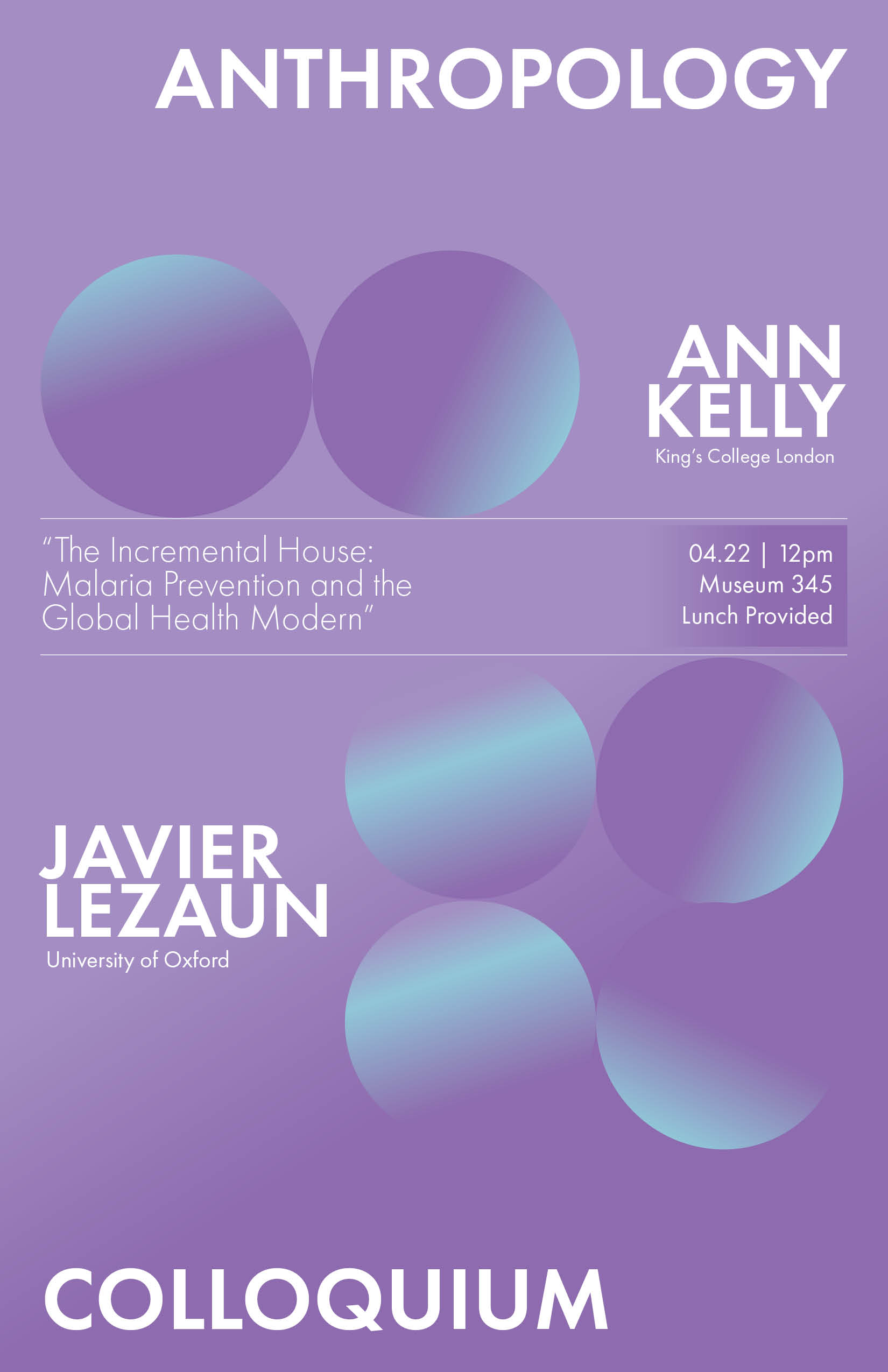Penn Museum 345

In this seminar, Kelly & Lezaun track shifting understandings of the relationship between malaria and the home by studying the experimental use of chemical repellents in an endemic context. Drawing on fieldwork with colleagues at the Ifakara Health Institute in Tanzania, we describe how spatial repellents – products designed to divert blood-seeking mosquitoes away from humans – shift the locus of malaria control from its traditional focus on indoor interventions and towards more diffuse and contingent peri-domestic situations. Spatial repellents also represent a sublethal mode of chemical action, as they are applied to re-route mosquitoes rather than kill them outright. Both shifts – from the indoor to the peri-domestic, and from the lethal to the sublethal – provide opportunities to rethink the socio-environmental parameters of malaria control, but also introduce a sense of moral ambivalence among global health researchers, as disease prevention is untethered from any long-lasting improvement in the material conditions of life. The speakers use this example to reflect on the power of chemicals to conjugate alternative imaginaries of individual and collective protection in an era of growing mosquito-borne threats.

 Department of Anthropology
Department of Anthropology